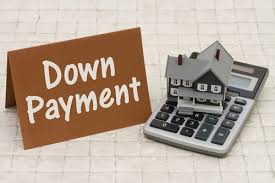When Is A Good Time For First Time Home Buyers To Purchase Their First Home?
First time home buyers can find the process exhilarating and stress. But when you’re armed with the right information, you can shop for one with confidence.
Our good friends a Unison have put together this handy guidebook to walk first time home buyers through the confusing maze of homeownership. They are awesome and allowed me to share it. Check it out:
When Is It A Good Time To Purchase Your First Home?
 The timing of buying a house doesn’t have to be perfect. But, there are a few things you have to know before you rush into homeownership. This little knowledge could save you a lot of time and aggravation.
The timing of buying a house doesn’t have to be perfect. But, there are a few things you have to know before you rush into homeownership. This little knowledge could save you a lot of time and aggravation.
Let’s get into it.
1. Are Your Finances in Order?
Understanding if you can afford a home should be the first step. Consider the long-term financial commitment involved.
You don’t wish to find your dream home, only to discover you’re not financially qualified to purchase it. Here are three ways to guarantee you’re financially ready:
- Your credit score: It’s not a surprise; getting a mortgage requires you to have a good credit score. Before you commit to buying your home, you should improve your credit score by paying your credit card balances and avoiding applying for credit till you’ve closed on your new house.
- Saved cash: Of course, you’ll need to have saved money for your down payment, but don’t underestimate how much money you’ll need for other expenses.
- Your documents should be in order: When applying for mortgages, you’ll require documents to verify your finances, such as copies of your last two tax returns, W-2’s, bank statements, and paystub.
You should wait until you’re genuinely ready to cater for the costs.
2. Can You Afford The Down Payment?
 Most aspiring homeowners don’t take much time to understand down payment. Put, a down payment is a lump sum of the total price of the home, paid upfront.
Most aspiring homeowners don’t take much time to understand down payment. Put, a down payment is a lump sum of the total price of the home, paid upfront.
Usually, it’s best to put down 20% of the home sale price (you can pay more if you wish). By doing so, you’ll appear less of a risk to the lender, and it’s possible to bypass private mortgage insurance (PMI) costs.
Apart from that, a down payment affects your eligibility of a loan, the overall cost of a loan, and whether you qualify for better interest rates.
Most first time buyers get excited about owning a house, forgetting the other monthly expenses besides purchasing a home.
Homeownership is more expensive; you’ll be responsible for added costs like appraisals, closing costs, insurance, taxes, and inspections. You should be careful not to hurt yourself financially.
3. Keep an Eye on the Interest Rates
 A 2019 report from the National Association of Realtors shows the median down payment was only 6% of first time home buyers.
A 2019 report from the National Association of Realtors shows the median down payment was only 6% of first time home buyers.
Hence, there are several mortgage options you can explore if you choose to pay less than 20% in the down payment.
They include:
- Convectional (non-agency) loan
- Federal Housing Administration (FHA)
- VA loan
- The US. Department of Agriculture (USDA)
- Fannie/Freddie 3% down
- The Energy Efficient Mortgage (EEM)
- 203K loan
- A home equity line of credit (HELOC) also known as the second mortgage
The interest rate (an amount calculated based on your monthly loan payment) depends on the type of mortgage you choose.
Additionally, personal qualifications help the lender determine the rate you get. When you have an excellent credit score and if you’re considered a low-risk borrower, you will secure a better rate.
Note: You might want to consider waiting a year or so to save more money. Because, if you put down less than 20 percent down payment, you’ll likely have higher interest rates. You’ll pay higher monthly payments, and it may add to the cost of your house. You should also prepare for additional costs of mortgage insurance.
4. Timing the Market
 The real estate market can be difficult even for real estate professionals.
The real estate market can be difficult even for real estate professionals.
By carefully assessing the market conditions, you’ll better understand the home prices.
If you’re hoping to buy when the prices have fallen, you should consider these key factors:
Home prices vary over time and change with the seasons: Prices can be dramatically high in summer since it’s a popular time for sellers to put their houses in the market and for people to move. It’s the worst time to buy if you want to get the best deal.
The buyer’s market: When there are more houses for sale and fewer buyers, the prices fall. This is the best time to purchase your home, and you have the possibility of saving thousands of dollars. You’re in the driver’s seat, and you may demand the seller to make upgrades and repairs as part of the purchase deal.
The seller’s market: There are multiple offers from homeowners eager to sell, and you can expect to pay more for a house. If you need to sell your current home before buying a future one, it’s an ideal time. However, don’t go ahead to buy your dream house just yet.
So, Are You Ready to Buy Your Dream House?
 There’s a lot to think about before you decide to buy your first home. Savings, down payments, mortgages, and interest rates are all in your mind.
There’s a lot to think about before you decide to buy your first home. Savings, down payments, mortgages, and interest rates are all in your mind.
If you have evaluated all of the areas and you are good, that’s okay!
Have fun exploring and taking the steps to own your first home. You may want to seek the help of an experienced professional to guide you through this new phase of your future.
An expert can make recommendations or explain the market to help you find a home that suits your needs and wants. A realtor can also negotiate the terms until you get an offer you can afford.



